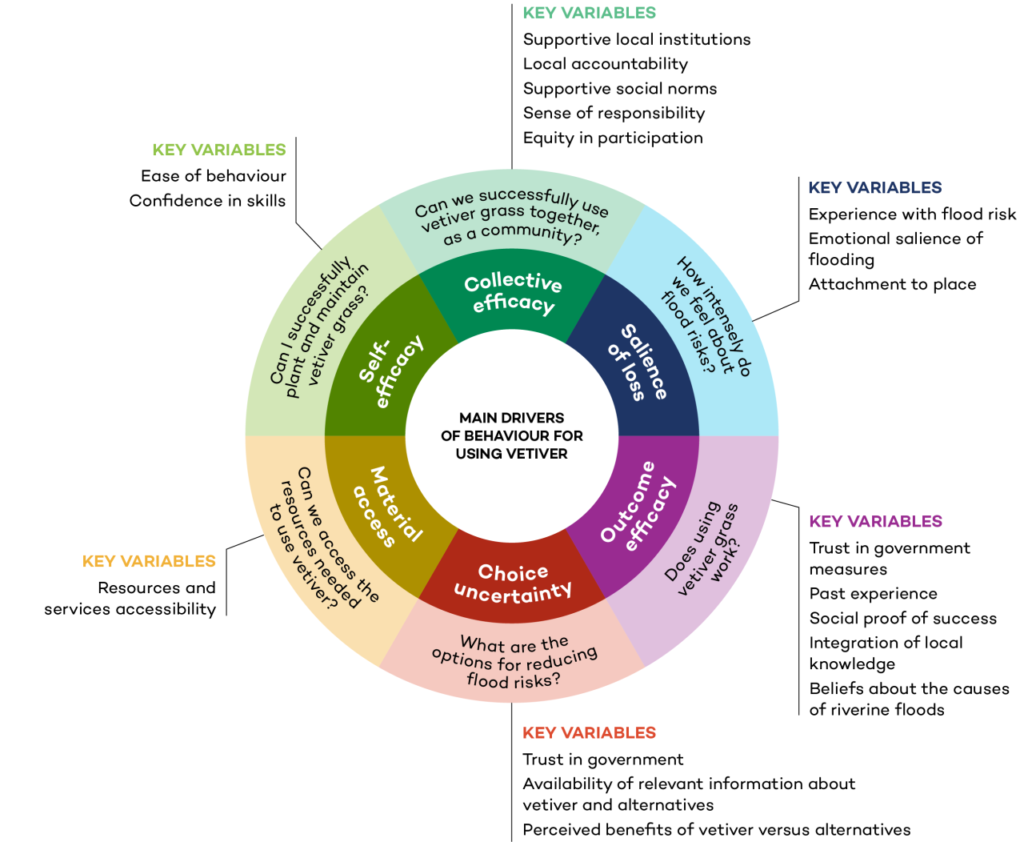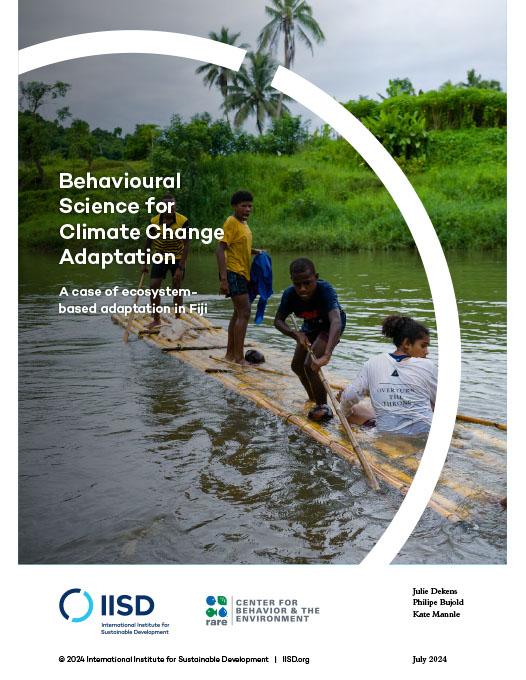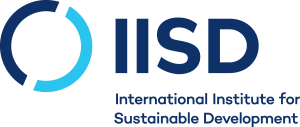Accélérer l'adoption de solutions EbA en utilisant une conception centrée sur le comportement : le cas du vétiver pour le contrôle de l'érosion des berges des rivières aux Fidji
Informations sur le projet
« Planter pour la résilience » est un projet réunissant des experts en adaptation climatique de la Institut international du développement durable (IIDD), des scientifiques du changement de comportement de Centre Rare pour le comportement et l'environnementet des représentants du gouvernement du ministère fidjien de l’Environnement et du Changement climatique.
L’objectif du projet était de tirer parti des connaissances issues des sciences comportementales pour accélérer l’adoption de solutions d’adaptation fondées sur les écosystèmes (AFE) par les communautés vulnérables des Fidji. À cette fin, une étude de cas a été menée afin d’examiner dans quelle mesure une solution AFE spécifique promue par le gouvernement fidjien – l’utilisation du vétiver pour la réhabilitation des berges des rivières afin de lutter contre les inondations – a été adoptée dans quatre communautés de la province de Tailevu, ainsi que les facteurs ayant influencé cette adoption au sein des communautés ciblées.
Réalisations du projet
1. Réalisation d'une étude approfondie dans quatre villages ruraux : Nous avons mené une série d'entretiens semi-structurés auprès des ménages en février 2023, complétés par des transects pédestres dans les villages et des cartes participatives, des discussions de groupe avec des femmes, des hommes et des jeunes, ainsi que des entretiens semi-structurés avec des experts aux niveaux national et provincial afin de comprendre les interventions passées.
2. Analyse du comportement communautaire à l'aide du modèle des facteurs comportementaux (BDM) de l'UNCIEF : Nous avons appliqué le cadre d'analyse des déterminants comportementaux (BDM) de 2019 pour évaluer les facteurs comportementaux influençant l'adoption du vétiver. L'analyse a révélé une adoption très limitée du vétiver dans les communautés sélectionnées.
3. Identification de six variables clés influençant les décisions des agriculteurs concernant l'utilisation du vétiver : À partir des données recueillies, l'équipe de recherche a identifié six variables clés qui semblaient influencer le comportement des agriculteurs en ce qui concerne l'utilisation du vétiver contre l'érosion des berges :
- Importance de la perte : si les villageois sont fortement préoccupés par les impacts négatifs que l'érosion et les inondations ont sur leur vie
- Incertitude quant au choix : si les villageois sont certains des options qui s'offrent à eux pour réduire l'érosion
- Efficacité des résultats : si les villageois pensent que le vétiver réduira efficacement l'érosion
- Efficacité collective : Les villageois estiment-ils que leur communauté est capable de planter et d'entretenir du vétiver pour réduire l'érosion ?
- Auto-efficacité : Les villageois estiment-ils pouvoir, à titre personnel, planter et entretenir avec succès du vétiver pour réduire l'érosion ?
- Accès aux matériaux : si les villageois estiment qu'ils peuvent facilement accéder au vétiver et se le permettre
Ces facteurs semblent actuellement avoir une importance capitale dans les communautés sélectionnées et devraient être prioritaires dans les interventions futures. Il est important de noter que, même si chacun des six facteurs est important pour favoriser l'adoption du vétiver, les traiter individuellement ne suffira probablement pas à induire un changement durable.

Indicateurs clés

IIDD
Les sciences du comportement peuvent-elles contribuer à étendre les solutions d’adaptation au changement climatique ?



